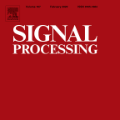Wireless communication systems to date primarily rely on the orthogonality of resources to facilitate the design and implementation, from user access to data transmission. Emerging applications and scenarios in the sixth generation (6G) wireless systems will require massive connectivity and transmission of a deluge of data, which calls for more flexibility in the design concept that goes beyond orthogonality. Furthermore, recent advances in signal processing and learning, e.g., deep learning, provide promising approaches to deal with complex and previously intractable problems. This article provides an overview of research efforts to date in the field of signal processing and learning for next-generation multiple access, with an emphasis on massive random access and non-orthogonal multiple access. The promising interplay with new technologies and the challenges in learning-based NGMA are discussed.
翻译:暂无翻译


